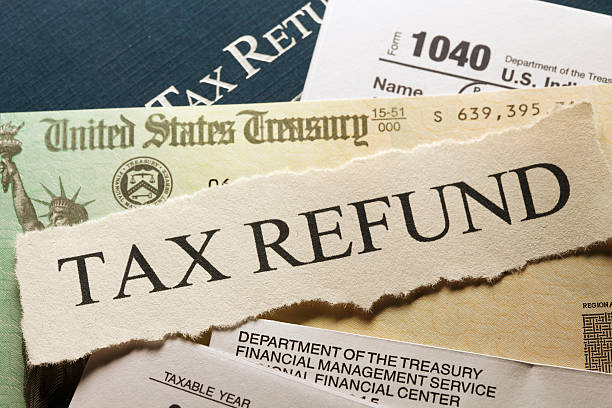This article may contain references to products or services from one or more of our advertisers or partners. We may receive compensation when you click on links to those products or services. Nonetheless, our opinions are our own.
When it comes to taxes, most people focus on the numbers: what’s owed, what’s already paid, and how to reduce liabilities. But your next tax refund could be larger than expected. Hidden within the complex web of tax codes are deductions and credits that many taxpayers overlook. We will explore nine commonly ignored tax breaks that could significantly increase your refund. Awareness of these opportunities will allow you to realize significant cost savings.
- Commonly Missed Write-Offs That Could Boost Your Refund
- Maximize Your Refund Through Education and Career Expenses
- Why Health Savings Accounts (HSAs) Deserve Your Attention
- Charitable Giving: How Generosity Can Pay Off
- Overlooked State-Specific Tax Credits That Add Up
-
Frequently Asked Questions
- What are hidden tax breaks?
- Can I benefit from education-related tax breaks?
- What deductions are available for homeowners?
- Are medical expenses deductible?
- Can charitable donations reduce my taxes?
- Are there tax breaks for dependent care?
- How do retirement contributions help with taxes?
- What state-specific breaks should I look for?
- How can I stay updated on tax breaks?
- Recommended Reads
Commonly Missed Write-Offs That Could Boost Your Refund
Many taxpayers miss deductions that could meaningfully affect their refund. These write-offs are often unnoticed but can deliver real financial benefits. Here are some surprisingly eligible deductions:
- Home Office Deduction: If you work from home, a portion of your rent or mortgage, utilities, and internet costs may be deductible.
- Medical Expenses: You can deduct qualifying medical expenses that exceed 7.5% of your adjusted gross income, including travel for medical care.
- Education Expenses: Costs for courses related to your current job may qualify if they improve your skills or job capabilities.
- State and Local Sales Tax: In states without income tax, you can deduct sales tax instead, which may lead to higher savings.
- Charitable Contributions: Donations to qualified charities, whether in cash or goods, are often fully deductible.
Quick Reference Table: Deduction Eligibility
| Deduction | Eligibility Criteria |
|---|---|
| Home Office | Must use a dedicated space in your home for business |
| Medical Expenses | Expenses must exceed 7.5% of adjusted gross income (AGI) |
| Education Expenses | Must relate to current employment |
| Sales Tax Deduction | Best in states without income tax |
| Charitable Contributions | Must be given to qualified organizations |
Tracking your eligible expense deductions can help you capture a higher refund and reduce your tax bill efficiently.
Maximize Your Refund Through Education and Career Expenses
Educational and career-related deductions can significantly improve your tax outcome. Tuition and fees for college or vocational courses may qualify, especially if they relate to your current occupation. Furthermore, don’t ignore professional development costs such as workshops, training sessions, and conferences that enhance your expertise.
Other deductible expenses include:
- Textbooks and supplies
- Student loan interest
- Work-related education expenses
- Home office costs if studying or working remotely
Why Health Savings Accounts (HSAs) Deserve Your Attention
Health Savings Accounts are a powerful financial tool for managing healthcare costs and reducing taxable income. Here are a few standout benefits:
- Tax Advantages: Contributions are tax-deductible, and interest or investment growth is tax-free. Qualified medical withdrawals are also tax-exempt.
- Long-Term Savings: Unlike FSAs, HSAs roll over unused funds year to year, allowing savings to grow.
- Retirement Benefits: After age 65, HSA withdrawals for non-medical uses are taxed like traditional retirement distributions penalty-free.
Estimated HSA Tax Savings Over Five Years
| Year | Contributions | Estimated Tax Savings |
|---|---|---|
| 1 | $3,600 | $900 |
| 2 | $3,600 | $900 |
| 3 | $3,600 | $900 |
| 4 | $3,600 | $900 |
| 5 | $3,600 | $900 |
Consistent contributions can lead to thousands in savings and long-term financial resilience.
Charitable Giving: How Generosity Can Pay Off
Charitable donations don’t just help causes; they can also help your wallet. Contributions to qualified nonprofits are often fully deductible. Whether you’re donating cash, clothing, or appreciated assets like stocks, it’s important to document everything properly.
Tips to Maximize Charitable Deductions:
- Verify that the organization is IRS-qualified.
- Keep detailed receipts, especially for larger donations.
- Consider donating appreciated securities to avoid capital gains tax.
- Check if your employer offers matching gifts to multiply your impact.
Charitable Contributions Summary
| Donation Type | Deduction Type |
|---|---|
| Cash Donations | Full value deductible |
| Goods/Clothing | Fair market value deductible |
| Securities | Fair market value; avoids capital gains tax |
Proper tracking ensures your goodwill also results in potential refund enhancements.
Overlooked State-Specific Tax Credits That Add Up
State-level tax credits can significantly reduce your tax bill but are often ignored. Every state offers unique incentives that benefit residents in areas like sustainability, education, or homeownership.
Examples of State-Specific Tax Benefits
- Renewable Energy Credits: Install solar panels or energy-efficient upgrades and earn credits that also reduce utility bills.
- Education Incentives: Contributions to 529 college savings plans may be deductible in some states.
- Homeowner Benefits: Some states offer property tax credits or deductions for older properties or recent upgrades.
Sample of State-Level Credits
| State | Credit Type | Potential Savings |
|---|---|---|
| California | Solar Energy Credit | Up to $1,000 |
| New York | College Savings Incentive | Up to $10,000 |
| Texas | Home Improvement Credit | Up to $2,500 |
Research your state’s offerings; these overlooked credits can make a big difference during tax season.
Frequently Asked Questions
They are lesser-known deductions or credits that can reduce taxable income or directly decrease your tax bill, increasing your refund.
Yes. If you’re paying for post-secondary education, you may qualify for credits like the American Opportunity Credit or Lifetime Learning Credit.
What deductions are available for homeowners?
Home-related deductions include mortgage interest, property taxes, and home office expenses. Energy-efficient upgrades may qualify for additional credits.
Are medical expenses deductible?
If unreimbursed medical costs exceed 7.5% of your adjusted gross income, they may be deducted. Eligible expenses include prescriptions, long-term care, and certain equipment.
Can charitable donations reduce my taxes?
Yes. Contributions to qualified charities—both cash and itemized goods—can be deducted from your taxable income with proper documentation.
Are there tax breaks for dependent care?
You may qualify for the Child and Dependent Care Credit if you pay for childcare while working or job-hunting.
How do retirement contributions help with taxes?
Contributing to accounts like a Traditional IRA may allow you to deduct those contributions, lowering taxable income and increasing your refund.
What state-specific breaks should I look for?
Each state has unique deductions and credits. Common examples include property tax rebates, solar incentives, or income-based credits.
How can I stay updated on tax breaks?
Use reputable tax software, subscribe to IRS updates, or consult a licensed tax professional to stay informed on new or changing credits and deductions.

Reviewed and edited by Albert Fang.
See a typo or want to suggest an edit/revision to the content? Use the comment form below for feedback.
At FangWallet, we value editorial integrity and open collaboration in curating quality content for readers to enjoy. Much appreciated for the assist.
Did you like our article and find it insightful? We encourage sharing the article link with family and friends to benefit as well - better yet, sharing on social media. Thank you for the support! 🍉
Article Title: 9 Hidden Tax Breaks to Boost Your Refund
https://fangwallet.com/2025/05/23/9-hidden-tax-breaks-to-boost-your-refund/The FangWallet Promise
FangWallet is an editorially independent resource - founded on breaking down challenging financial concepts for anyone to understand since 2014. While we adhere to editorial integrity, note that this post may contain references to products from our partners.
The FangWallet promise is always to have your best interest in mind and be transparent and honest about the financial picture.
Become an Insider

Subscribe to get a free daily budget planner printable to help get your money on track!
Make passive money the right way. No spam.
Editorial Disclaimer: The editorial content on this page is not provided by any of the companies mentioned. The opinions expressed here are the author's alone.
The content of this website is for informational purposes only and does not represent investment advice, or an offer or solicitation to buy or sell any security, investment, or product. Investors are encouraged to do their own due diligence, and, if necessary, consult professional advising before making any investment decisions. Investing involves a high degree of risk, and financial losses may occur including the potential loss of principal.
Source Citation References:
+ Inspo
There are no additional citations or references to note for this article at this time.











































